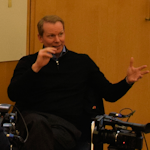Charlie: It must be a bit of a shock coming back?
It is, but it sounds like the economics tripos is very similar to how it was in my day, with a mix of UK and International students bringing really diverse thinking. I still love economics. I loved what I did then, and I still love what I do now. I use what I learned here every day.
What are your fondest memories, of the faculty, of the teaching you received here, and of your college as well.
My fondest memories had nothing to do with learning. I was heavily into sport. I met my future wife here and had a lot of fun outside of the learning.
Economics has played a big role in my career, particularly game theory and transactional economics. What I’ve done for the last 30 years has used digital data to unbundle and reform the way organisations work. I also use macro economics almost every day, working with our customers, the Bank of England and the government – this area wasn’t even my favourite when I was at college!
And how about your time in college as well; which was your college?
Downing College. I didn’t expect to come to Cambridge – I was at a local state school and I had poor A level grade predictions. I took a year off after I finished school, and it was suggested that I should apply. I picked my college based on which college was good at sports and still had a nice look in the pictures! When I applied, you could choose three colleges; I wrote my first choice, Downing College, and then I crossed out two and three. I found my original application form about three or four years ago, I’m still surprised they let me in! I started rowing and I was the Honorary Secretary of the Cambridge University Rowing Club, which is probably the best title I've ever had. What it really meant was I wasn’t good enough for the Blue Boat so they gave me a different title. I did a lot of rowing, a lot of cycling, and a lot of meeting friends and having fun. It was great.
We received many good questions from many students thinking about a career in banking. One asks how you are going to get doors to open for you, and indeed what do you do to impress a hiring manager?
I ended up in banking because I was passionate about economics and financial services. I really believe financial services matters, it enables societies to work. I was really passionate about technology and how it could change the future of society, and I wanted to see the world.
I'd never flown outside of the UK before. I earned my own money and started travelling. With those two passions of economics and technology, I worked out where I wanted to go. I initially went into the trading floors on the back of an econometric piece of work I had been doing; I'd helped the Bank of England do some modelling in my summer placement. I spent six months modelling the US dollar yen exchange rate as an extension of a summer placement and I then decided I hated the culture on the trading floors. I didn't know what I wanted to do so I thought if I joined a consulting firm, I’d get to see every sector in the world and I could work in any country in the world. And that's why I joined what was then called Anderson Consulting, now Accenture.
Everyone I know that's got on and done things they’ve been passionate about, has failed at virtually every step at least once, if not multiple times. I applied to every consultancy on the planet. When I looked at Accenture, I had a really clear vision in my mind for the kind of firm I wanted to join and I just started going for many of them. I applied to McKinsey's back in 1993 and they said ‘not a chance’. I researched where I wanted to go, started the application process and it was the first step of a process in which I learned how to ‘interview’ and by getting rejected, I learned how to be better at representing myself and working out what I wanted to do. I can't remember how many times I had applied for roles until I got accepted but it was a lot. The important thing, though, when you get in any organisation, you have to have a really clear view around what you want to get out of it.
Working out how you really take advantage of your organization is where you can have a brilliant experience or you can have a less positive experience. I decided I wanted to go and work around the world, and I wanted to work in different areas of financial services. I wanted to go and see the best tech companies. I ended up in San Francisco for five years during the dot com boom. I worked on the trading floors of New York, Singapore, Frankfurt and Zurich. I’ve had the opportunity to work in diverse and international locations and cultures.
Wherever you start it, its what you do next that makes your career more fun and your learning better.
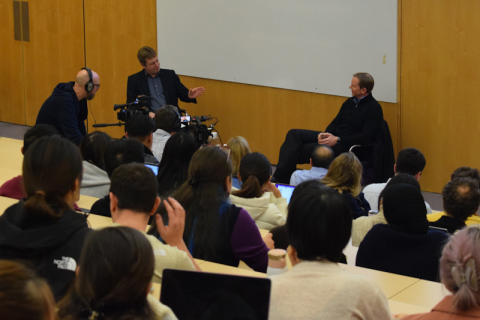
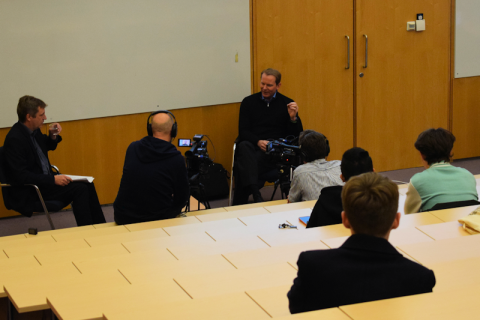
What do you say to those people who maybe have look at a career in banking and think actually, it's not for me?
Like everything, I think you definitely have to go and meet different people and businesses, and test that view. Financial services is now more mature in terms of diversity, although of course like many industries we have some way to go. Where we are having to really drive the pace is seniority around female gender and ethnic diversity, and that's a real priority certainly for me. There were parts of financial services in the 1990s that I really wouldn't recommend, but it has changed a lot. There are organisations that are completely committed now to a different way of working.
Just to give you an example, as a large financial services organisation, we have made a public commitment to have 50% gender diversity and then black, Asian, minority and ethnic representation of 13.5%. We have made public commitments, to report on all of those ethnicity and diversity targets, and I know that will make us a better, fitter organisation, that will serve our customers better and be a much more fun place to live and work. And I'm sure many people probably in this room will be looking in the next few years for a fun place to work!
How relevant is the economic theory that we're teaching, to the real world?
I said up front, I use what I learnt here every day, that links to the nature of my role. Even on day one I was using econometric modelling, trying to use macro theory and trade to understand why there was an imbalance in trade between the US and Japan that was very specific.
Literally all the way through my career, different parts of what I learned here have been relevant. I've always thought economics is a way of thinking about problems and breaking them down to a simplified view of the world, so that you can then build back up into reality. That's been probably the most powerful part of what I learnt, as in the real world complexity can stop you making decisions. Thinking about reconstructing value chains and business models has been at the heart of what I've done throughout my career.
Then there is macroeconomic theory. Lloyds Banking Group plays a significant role in the UK economy. That means I am regularly engaging with the Bank of England around economic challenges and monetary policy. I’m also discussing with the government on how the cost of living is impacting society, targeted support to prevent and support vulnerable customers and how to make some of the fiscal stimulus more effective. This is all at the core of economic theory. If I didn't have the learning from Cambridge, I'd feel very, very exposed in those conversations.
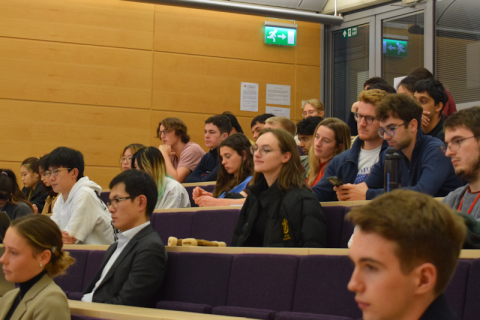
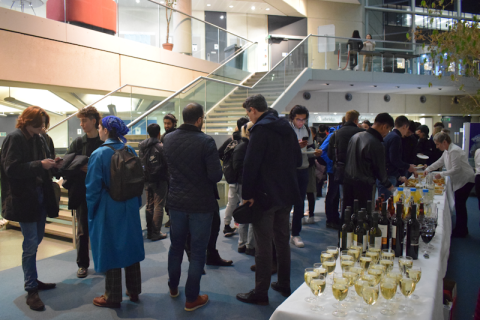
How do you actually get yourself match fit, work ready so you can actually work properly in that organisation on the first day in the job?
I do work hard, and I'm not sure you can do much to prepare for it, but I do think that's why doing something that you have a genuine passion for is by far the most important thing. The things I get passionate about are technology, financial services, seeing the world and working in different cultures. If you start a new role, and you're passionate about things, it's pretty easy to get passionate about what work you're doing.
It’s really important to set your expectations around what you're going to be expected to do. Many people tell me is that they need to play a ‘certain role’; they need to ‘be’ a certain way, and they need to show a certain level of professionalism which isn't really aligned to their true selves. I think that was true 30 years ago. My strong advice or perspective would be, to get comfortable showing up as your authentic self. You'll have much more impact, people will follow you or want to work with you, and it will be far less tiring.
I spent my first ten years playing the role that I thought I needed to be, and making myself seem smart. I felt I really had to play a role. The reality was that's just a distraction. It's not the best way to be impactful. Get comfortable being your authentic self and make it work.
How do you maintain a good worklife balance?
I have worked hard. I have a family with four children, and I still get to do what I care about. I pack a lot in. I exercise four or five times a week.
The reality is you're going to have to work hard depending on your career choice. But you can set your own boundaries from the start. Hybrid flexible ways of working and the technology we are working with now is enabling much more flexibility for our people and for balance in terms of what we do.
This is about doing one thing you're passionate about. Define your boundaries and then don't go and do a job that makes you work 24/7.
This is an edited transcript of just the first fifteen minutes of his discussion. Charlie then went on to speak for over an hour, continuing with questions about the macro-economic outlook and what this might mean for Lloyds, investments in fossil fuels, the turbulent state of the markets, and many other issues. All of these are in the video of his talk.

